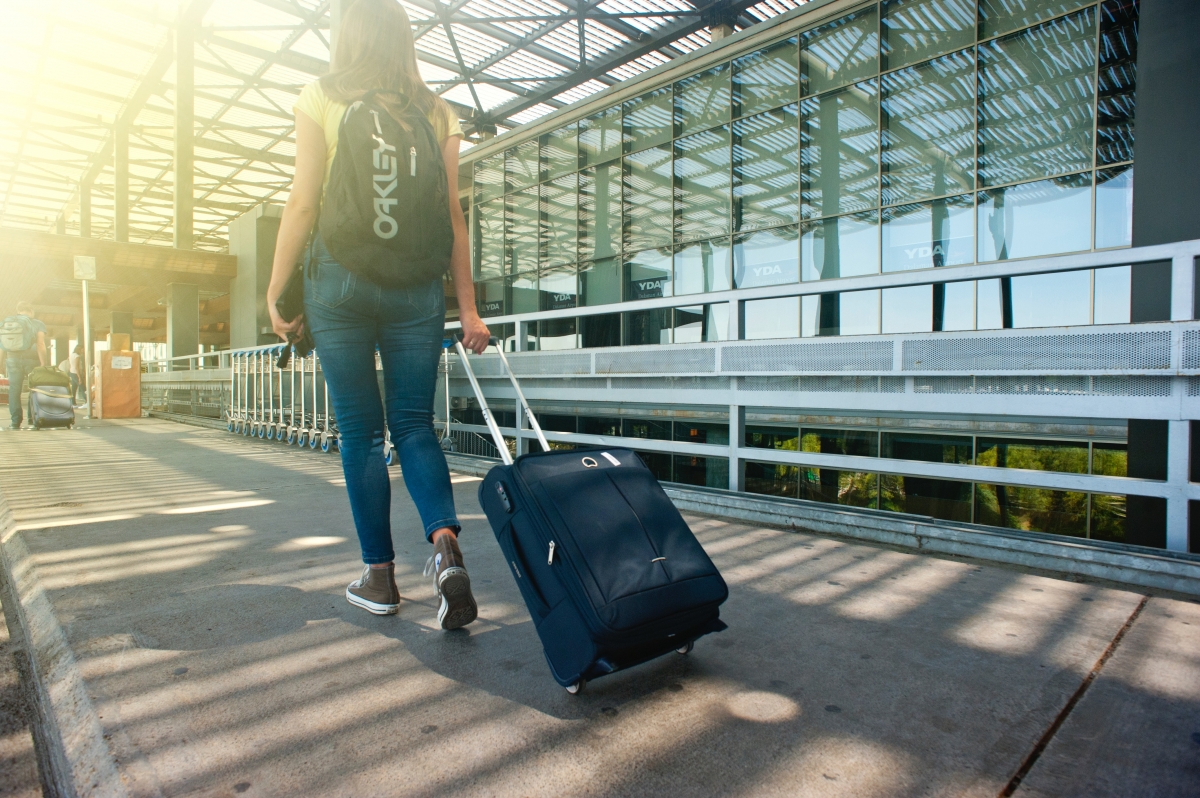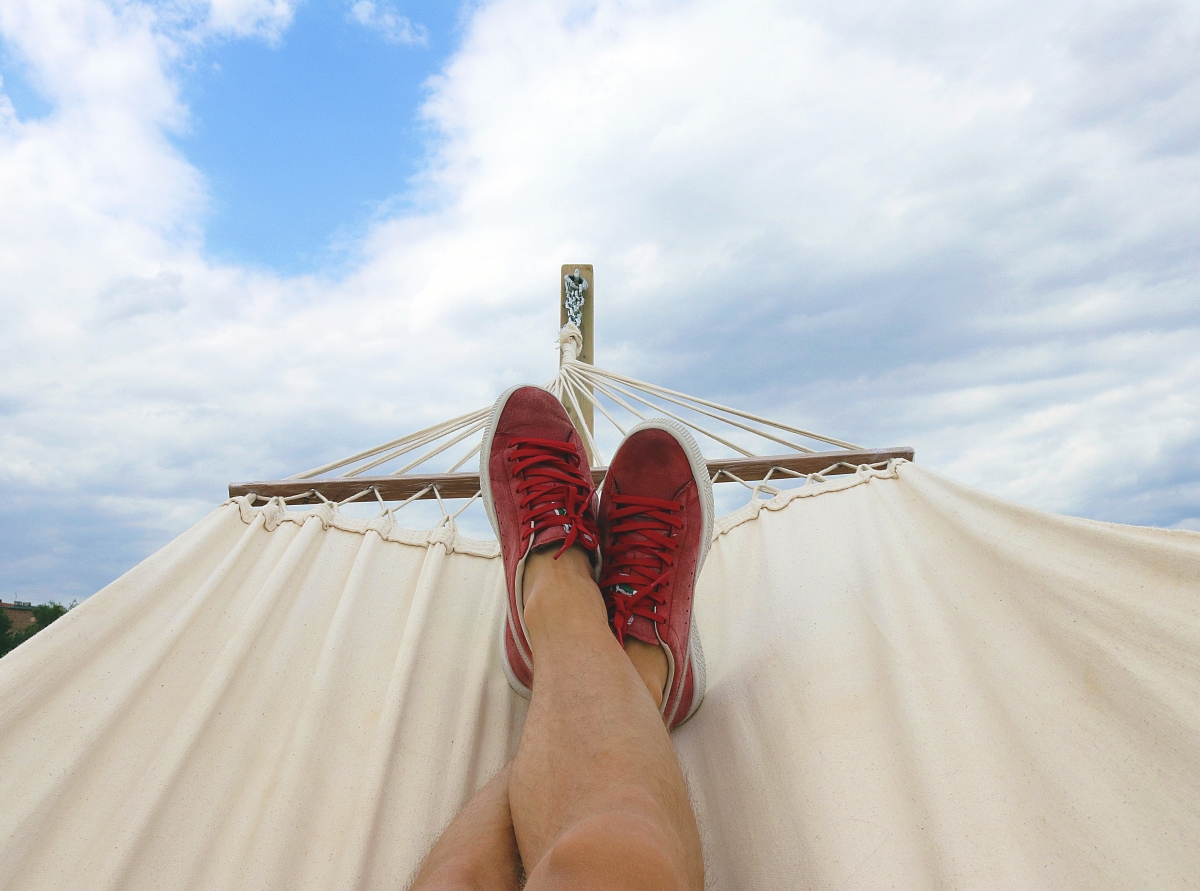Can vacations live up to their reputation?
Especially in the time before summer, people look forward to the beginning of their summer vacations. On the one hand, holidays are an integral part of life of our society and primarily provide relaxation and recovery. On the other hand, recent research shows that vacation effects fade-out quite quickly after returning to work. As such, this raises an important question: Are vacations overvalued or even superfluous? What do we know about this phenomenon and what needs to be further investigated?
Vacations are considered to be the nicest time of the year as they are associated with leisure time, good food and long walks on beaches or adventurous activities. Taking time off from work has a good reputation for most people to the degree that regular work vacations seem to be fixed components of peoples’ lives in modern society. That people use this time to visit new places is supported by statistical data [1] and 2017 marked a peak in international tourism. Additionally, trend analysis for 2018 suggest a growing rate of international tourism between 4 and 5% worldwide.
In contrast to common knowledge about vacation and recovery, recent research has shown that the beneficial effects of vacations often disappear in a relatively short-term, e g., mostly within one month following a vacation [2, 3, 4]. These findings suggest that maintaining the recovery gained during vacations after the vacation ends is not as easy as most people think. Although researchers have begun to focus on this topic, it remains a relatively young research field [5]. Moreover, the underlying mechanisms of maintaining positive recovery effects after a person returns from vacation are still not fully understood. Learning more about this relationship is essential to better comprehend employees’ health, as occupational stressors can have a negative impact on important factors such as health or well-being [6, 7]. As such, it is important that researchers continue to investigate recovery processes and their stability. To facilitate further growth in the field, in the following I provide an overview of the current state of research focusing vacation after effects with regard to employees’ health, well-being and work engagement
Why go on vacation?
According to de Bloom, Geurts, and Kompier [5] one reason people go on vacation is to gain recovery. But what exactly does “recovery” mean in this context? Although recovery has a high value in today's society and is firmly established in daily language use, the construct continues to lack a common definition. There is, nonetheless, consensus that recovery is a multidimensional phenomenon, including empowerment, purpose and hope. Even various health-related aspects associated with recreation are now in agreement in research, particularly in terms of increased empowerment, purpose and hope. Recovery is also an individual phenomenon, which is represented differently by any individual [8]. One definition of recovery describes the phenomenon as “[…] a situation in which no special demands are made on the individual” [9]. But recovery is also understood as a psychophysiological process after a situation occurs without strain, in which the body and mind regain a state of homeostatic balance. This applies to both psychological and physiological markers of recovery [10]. In summary recovery through vacationing is an individual process, in which an individual can recover from work stress, which plays a vital role in preserving employees’ well-being [9]. A further distinction is made between internal and external recovery. Internal recovery is defined as the possibility to recover during work through, for example, coffee breaks. On the other hand, external recovery is described as recovery outside work, such as weekends or vacations. Accordingly, this article focuses on external recovery [8, 10].
Various theories have dealt with recovery processes from different points of view to explain how recovery can occur during vacations. In the following, two influencing recovery theories will be described in more detail: First, Effort-Recovery Theory [11] assumes that work demands require resources and effort which lead to stress reactions and exhaustion. However, this state is reversible because recovery begins when the individual is no longer exposed to stress and work-requirements [11]. Second, Conservation of Resources Theory [12] postulates that stress reactions are caused by a loss of resources or a lack of resource reconstruction. Recovery can be understood as the opposite process: this ensures that resources will be built up and maintained. The resulting recovery is discussed as an active process in which new resources are established [12]. Both of these theories focus on the emergence of recovery processes during vacation. But what happens with recovery after vacation?
Current vacation research indicates that recovery effects fade-out rather quickly, for example, mostly within one month after vacation [2, 3, 4]. Fade-out effects are described as the difficulty associated with the consumption of resources and the perpetuation of beneficial effects of vacation in academic literature [3]. As an example, imagine people returning from vacation and they are again confronted with stressors that consume their resources leading to a quick reduction in the positive effects of recovery. Given that there are growing numbers of stress-related absences from work and employees experience psychological problems in their work life [13], it would be important to close this gap of knowledge: what do we know about the fading-out of positive recovery effects on different health-related outcomes?
Fade-out effects - current state of research
Westman and Eden’s research [4] found that participating employees’ burnout scores decrease during vacation. However, the same study also found that recovery effects do not appear to be long-lasting: three weeks after vacation, the burnout scores were again as high as six weeks prior to vacation [4]. This is one example of the fade-out effects of recovery, on which further research has usually been based. Most studies investigating fade-out effects primarily focus on health-related outcomes, well-being, indicators of work engagement and vacation experiences. In this context, it is important to know that fade-out-effects have so far received little attention in holiday investigations. Thus, the term subsumes a wide variety of concepts. Below I review research which examines fade-out effects in regards to vacation.
Regarding health-related outcomes, De Bloom et al. [2] investigated the different effects of vacation and their conservation. Variables such as sleep quality and health status were operationalized as health indicators. With regard to health status, significant improvements were observed during vacation, while there were no significant improvements in sleep quality. Moreover, one week after work resumption, health status scores were again at pre-vacation level, which is an indicator of fade-out effects. These results reflect other work of De Bloom et al. [5] who found that health status improved during vacation and faded out quickly after returning to work. Kühnel and Sonnentag [3] investigated a sample of teachers and focused on burnout as an indicator of health. This study’s results not only show a decline in burnout levels during vacations, but also that this positive vacation effect faded out within one month. Fritz and Sonnentag [14] examined the effects of vacations on health complaints and burnout in a longitudinal study. They found a significant improvement in health complaints after vacation and observed fade-out effect two weeks after. For burnout, they found no statistically significant change from pre-holiday to post-holiday and consequently could not investigate any fade-out effects on the construct. Due to this unexpected result, they suggest that the investigated timeframe could be too short to uncover possible fade-out tendencies. In summary, fade-out effects could be observed in nearly every measured health-related outcome.
For the investigation of fade-out effects on well-being, De Bloom and colleagues [2] observed mood, tension, energy level, satisfaction and happiness both during vacation and after returning home. This study supports evidence from previous observations concerning health [2, 3] and reveals that vacation positively influences well-being outcomes, but also that those effects seem to not be stable over time [5]. Differences between the investigated outcomes for well-being mentioned previously were not reported. The presented study was able to replicate the results of a former study by De Bloom et al. [2]. In sum, there also seems to be fade-out tendencies for well-being after vacation. It is important to note, however, that the measurement of well-being is often not differentiated enough to obtain comprehensive results.
Another construct of interest in investigating fade-out effects of employees is work engagement. Kühnel and Sonnentag [3] found that teachers’ work engagement increased significantly from pre-vacation to immediately post-vacation, which can be understood as an indicator of the beneficial effects of vacations. Within four weeks, however, after resumption of work, work engagement decreased, which suggests that fade-out affects work engagement as well as health and well-being [3]. In comparison with the results of health complaints and burnout from Fritz and Sonnentag [14], no fade-out effects could be found for performance-related outcomes, such as self-reported task performance and self-reported effort expenditure, although holidays had a positive influence on these variables. Again here, the authors postulate that the investigated time frame after vacations could be too short to find fade-out effects and that three or four weeks after vacation, the possibility to uncover the expected effects would have been higher [14]. The findings regarding work engagement are still very rare, and the results presented here should thus be interpreted carefully.
In addition to potential outcomes, the influence of various variables on the development of vacation fade-out effects were partially examined in these studies. The most investigated moderator in this context is vacation experience [3, 14, 15]. This includes relaxation, pleasure from vacation activities, and savouring [15] as well as psychological detachment from work and the quality of conversations with a partner [5]. Vacation experiences seem to be highly associated with positive effects on health, well-being and effort expenditure outcomes through vacation.
Underlying mechanisms for the occurrence of fade-out effects after vacation on employees have not yet been fully investigated [15]. Previous findings indicate that the fade-out effects are not gender-specific [3]. Additionally, research underlines—against common expectations— that neither the travel destination nor the duration of travel has a significant impact on the recovery effect of travelling [5]. Furthermore, the day an individual returns from a vacation seems to make a difference in terms of fade-out effects [16]. Recent results have also shown that more rest periods on holiday and free weekends after the holiday as well as the completion of all pre-vacation tasks ensure that effects occur more slowly [17]. Thus, as reviewed in this section, scholars already have some understanding of the influencing factors of fade-out effects, but many outstanding questions nevertheless remain about the causes and influencing factors.
What needs to be done?
The current state of research suggests that there are vacation fade-out effects after resumption of work, sooner than expected. Fade-out effects could be observed for health, well-being and effort expenditure. Additionally, few moderators, which influence the occurrence of fade-out effects, have been investigated to date. These findings, however, are only interpretable to a limited extent. This is due to the fact that there is a finite amount of studies on this topic, while, moreover, only few studies fulfil the needed demands for evaluating recovery (after) effects [2]. Among others, one main weakness of such studies is that most information was collected through self-reports. Further suitable possibilities for data collection could include ratings by family members [5] or employers. Other physiological measurement methods, such as the examination of stress hormones or blood pressure, could also contribute to a more comprehensive gain in knowledge. Moreover, most of the studies failed to use appropriate measures to adequately depict the object of research. They primarily use single-item measures, which can negatively influence internal validity. The results are to be critically considered as most studies did not have any control group to ensure the effects. Furthermore, it is suggested that outcome variables ought to be measured in a long-term follow up, as vacation may have a positive impact on health over the life span [15]. Finally, there are different limitations on external validity that might result from small sample sizes and questionable generalizability of findings, as some studies used a homogenous sample (e. g., only teachers).
On the basis of their research results, Kühnel and Sonnentag [3] have given some practical implications to ensure optimal benefits from vacations. On the one hand, it seems to make sense to start the vacation on a Wednesday. On the other hand, the workload should only be slowly increased following the vacation. Researchers also recommend several short-vacations throughout the work year, instead of one long vacation [18]. In general, recovery effects and their conservation seem to depend on different factors, which we might not yet know or understand. Further research is needed to examine determinants of vacation (after-) effects and to understand the mechanisms that prevent the fade-out of the positive recovery effects. On the one hand, individual factors could be helpful variables to investigate underlying mechanism of fade-out. For example, personality traits, workaholism [15] or the question if fade-out effects depend on an employees’ cultural background of an employee. On the other hand, work-related factors like job demands after vacation or social support provided by employers or organizations should also be taken into account of research [3, 14].
To return to the question whether vacation is overvalued or even superfluous posed at the beginning of this article, study results on the relationship between health determinants and the frequency of holidays clearly indicate its importance. For example, it has been shown that few vacation periods are increasingly associated with typical occupational diseases [19, 20]. In particular, stress diseases such as coronary heart disease and increased mortality are associated with low vacation periods [19, 20, 21]. That shows that vacations do matter, even if positive recovery effects fade out more or less quickly after work resumption. Anyone questioning the value of vacation should confront De Bloom and colleagues’ [15] argument:
“Asking why we should keep going on vacations is therefore comparable to asking why we should go to sleep considering the fact that we get tired again.”
References
[1] The World Tourism Organization (2018). 2017 International Tourism Results: the highest in seven years. Retrieved from http://media.unwto.org/press-release/2018-01-15/2017-international-touri...
[2] De Bloom, J., Geurts, S. A. E., Taris, T. W., Sonnentag, S., de Weerth, C., & Kompier, M. A. J. (2010). Effects of vacation from work on health and well-being: Lots of fun, quickly gone. Work & Stress, 2, 196 - 216. DOI10.1080/02678373.2010.493385.
[3] Kühnel, J., & Sonnentag, S. (2011). How long do you benefit from vacation? A closer look at the fade-out of vacation effects. Journal of Organizational Behavior, 32, 125 - 143. DOI: 10.1002/job.699.
[4] Westman, M., & Eden, D. (1997). Effects of a respite from work on burnout: Vacation relief and fade-out. Journal of Applied Psychology, 82, 516 - 527. DOI:10.1037/0021-9010.82.4.516
[5] De Bloom, J. (2012). How do vacations affect workers´ health and well-being? Vacation (after-) effects and the role of vacation activities and experiences. `s Hertogen-bosch: Box Press.
[6] Akerstedt, T. (2006). Psychosocial stress and impaired sleep. Scandinavian Journal of Work, Environment & Health, 32, 493 - 501. DOI: 10.5271/sjweh.1054.
[7] Vrijkotte, T.G.M.; Van Doornen, L.J.P., De Geus, E.J.C. (2000). Effects of work stress on ambulatory blood pressure, heart rate and heart rate variability. Hypertension, 35, 880 - 886. DOI: 10.1161/01.HYP.35.4.880.
[8] Ellison, M.L., Belanger, L.K., Niles, B.L., Evans, L.C., Bauer, M.S. (2018). Explication and Definition of Mental Health Recovery: A Systematic Review. Administration and Policy in Mental Health and Mental Health Services Research. 45 (1), 91-102. DOI: 10.1007/s10488-016-0767-9.
[9] Guerts, S. A. E., & Sonnentag, S. (2006) Recovery as an explanatory mechanism in the relation between acute stress reactions and chronic health impairment. Scandinavian Journal of Work, Environment & Health, 32 (6), 482 - 492.
[10] Geurts, S. A. E., & Beckers, D. G. J. (2013). Recovery from Demanding Work Hours. In: M. C. W. Peeters & T. W. Taris (Eds.). An Introduction to Contemporary Work Psychology (p. 196-219). Sussex: Wiley-Blackwell.
[11] Meijman, T. F., & Mulder, G. (1998). Psychological aspects of workload. In P.J.D. Drenth, H. Thierry, & C.J. de Wolff (Eds.), Handbook of work and organizational psychology. Work psychology (2nd ed., Vol. 2, pp. 5 - 33). Hove: Psychology Press.
[12] Hobfoll, S. E. (1989). Conservation of Resources. A New Attempt at Conceptualizing Stress. American Psychologist, 44 (3), 513 - 524.
[13] Michie, S., & Williams, S. (2003). Reducing work related psychological ill health and sickness absence: a systematic literature review. Occupational & Environmental Medicine Journal, 60, 3 - 9. DOI: 10.1136/oem.60.1.3.
[14] Fritz, C., & Sonnentag, S. (2006). Recovery, Well-Being, and Performance-Related Outcomes: The Role of Workload and Vacation-Experiences. Journal of Applied Psychology, 91 (4), 936 - 945. DOI: 10.1037/0021-9010.91.4.936.
[15] De Bloom, J., Geurts, S. A. E., & Kompier, M. A. J. (2013). Vacation (after-) effects on employee’health and well-being, and the role of vacation activities, experiences and sleep. Journal of Happiness Studies, 14 ,613- 633. DOI: 10.1007/s10902-012-9345-3.
[16] Strauss-Blasche, G., Muhry, F., Lehofer, M., Moser, M., & Marktl, W. (2004). Time course of well-being after a three-week resort-based respite from occupational and domestic demands: carry-over, contrast and situation effects. Journal of Leisure Research, 36, 293-309. DOI: 10.1080/00222216.2004.11950025.
[17] Syrek, C.J., Weigelt, O., Kühnel, J., & de Bloom, J. (2018). All I want for Christmas is recovery – changes in employee affective well-being before and after vacation. Work & Stress, 1-21. DOI: 10.1080/02678373.2018.1427816.
[18] De Bloom, J., Kompier, M., Geurts, S., de Weerth, C., Taris, T., & Sonnentag, S. (2009). Do we recover from vacation? Meta-analysis of vacation effects on health and well-being. Journal of Occupational Health, 51, 13 - 25. DOI: 10.1539/joh.K8004.
[19] Tarumi, K., Hagihara, A., & Morimoto, K. (1998). An investigation into the effects of vacations on the health status in male white-collar workers. Environmental Health and Preventive Medicine, 3 (1), 23-30. DOI: 10.1007/BF02931235.
[20] Eaker, E. D., Pinsky, J., & Castelli, W. P. (1992). Myocardial infarction and coronary death among women: psychosocial predictors from a 20-year follow-up of women in the Framingham Study. American Journal of Epidemiology, 135 (8), 854-64. DOI: 10.1093/oxfordjournals.aje.a116381.
[21] Gump, B.B., Matthews, K.A. (2000). Are vacations good for your health? The 9-year mortality experience after the multiple risk factor intervention trial. Psychosomatic Medicine, 62 (5), 608-12. DOI: 10.1097/00006842-200009000-00003.




